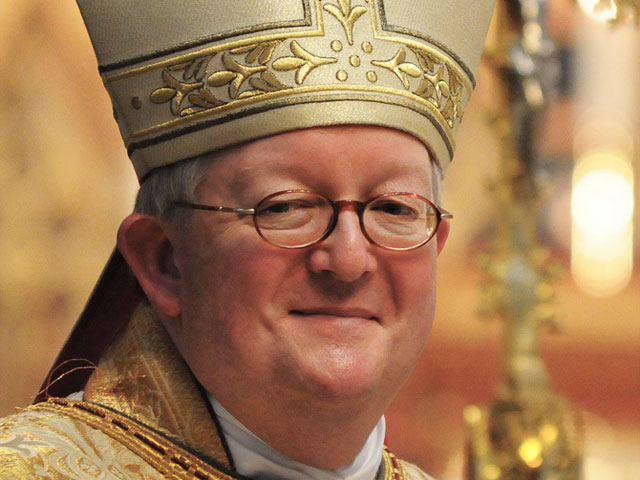The Independent is reporting that Pope Francis is a heretic. More precisely The Independent has insinuated that Francis has adopted a Pelagian view of salvation.
But it could also be saying the pope is a crypto-Lutheran. Or, has it simply botched the translation from the Italian original, omitted key portions of the quote, ignored the context of the statement, and made a hash of the theology being discussed in Pope Francis’ letter to an Italian newspaper?
“Bear in the woods” stories or breaking news reports that the “pope is Catholic” seldom get pushed to the front pages of a daily newspaper. I have sympathy for a reporter then who thinks he has found a “man bites dog” story. But The Independent‘s 11 Sept 2013 article entitled “Pope Francis assures atheists: You don’t have to believe in God to go to heaven” is not it.
Not only does it assume that doctrinal development for the Catholic Church takes place in the letter page of a secular newspaper, it misses the point of the pope’s comments. And it does not attempt to break free from the tired liberal / conservative dichotomy. The content of what the pope says, even when it appears to be off base, is of less importance than the classification of his teaching in secular political terms.
The story opens:
In comments likely to enhance his progressive reputation, Pope Francis has written a long, open letter to the founder of La Repubblica newspaper, Eugenio Scalfari, stating that non-believers would be forgiven by God if they followed their consciences.
Responding to a list of questions published in the paper by Mr Scalfari, who is not a Roman Catholic, Francis wrote: “You ask me if the God of the Christians forgives those who don’t believe and who don’t seek the faith. I start by saying – and this is the fundamental thing – that God’s mercy has no limits if you go to him with a sincere and contrite heart. The issue for those who do not believe in God is to obey their conscience.
“Sin, even for those who have no faith, exists when people disobey their conscience.”
The Independent went to a liberal Catholic publication for an expert quote — and found what it was looking for, and then dropped in Francis comments about homosexuality to close out the story.
If a reader’s sole source of information on what the pope said was this story, he might be excused for thinking the pope was preaching Pelagianism. Wikipedia sums up this theological term by saying:
Pelagianism is the belief that original sin did not taint human nature and that mortal will is still capable of choosing good or evil without special Divine aid.
The undivided church condemned this understanding of salvation in 418 at the Council of Carthage. It anathematized the proposition that men could, without special grace from God, fulfill the commands of God by the exercise of their own free will. It rejected the view that when the saints pray “forgive us our trespasses” they are praying for others, not for themselves, or that they utter these words “out of humility and not because they are true.”
Not all were convinced by these arguments, and in in 529 at the Second Council of Orange anathematized the Pelagian teaching that “by the force of nature we can rightly think or choose anything that is good.” Is the pope then a Pelagian? Does he teach that an atheist by his own will can achieve salvation if he remains true to his conscience?
No, he did not say that. Jimmy Akin writing in the National Catholic Register demolishes this foolishness. He recites the pope’s full statement, reported only in part by The Independent, and notes:
Pope Francis then pivots to discuss “the issue for those who do not believe in God.” He says that for them “the issue” is following their conscience, which will result in good behavior. This is what the press, etc., have been interpreting as him saying that they can be saved. But he doesn’t actually say that.
Believers also need to follow their conscience, and doing so will result in them having right behavior. But if they don’t follow their consciences then they sin and need to ask for mercy with contrition and a sincere heart. What are atheists supposed to do if they don’t follow their consciences? Pope Francis does not address this question.
Akin notes the meme of “pope says atheists go to heaven” has been raised before, and offers the opinion that the confusion arises from a misunderstanding of Catholic doctrine.
Perhaps. Yet even a reporter with only a passing knowledge of religion should have paused if he believed the pope was saying that human conscience was of higher authority than divine revelation. At the Diet of Worms, Martin Luther said that a human conscience, guided by revelation as found in Scripture and informed by reason, could serve as a guide.
Unless convinced by the testimony of Scripture or right reason, for I trust neither the pope nor councils inasmuch as they have often erred and contradicted one another, I am bound by conscience, held captive by the Word of God in the Scriptures I have quoted. I neither can nor will recant anything, for it is neither right nor safe to act against conscience. God help me! Amen.
Was the pope saying this? Or was he saying the consciences of those who rejected divine revelation (atheists) was an all sufficient guide? Or was he engaged in a pastoral conversation with an atheist, seeking a common ground in which to begin dialogue? What was the story — theology, pastoral outreach to non-believers, or another round in the battle between liberal and conservative Catholics?
The Independent raises interesting questions, but drops them in favor of the good v bad Catholic story. Unfortunately for The Independent though, the pope is still Catholic.











